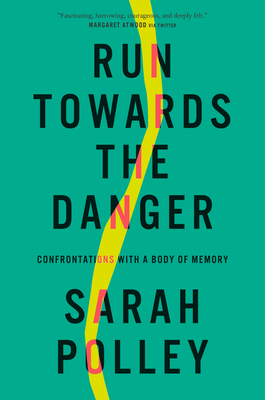What do you think?
Rate this book


272 pages, Hardcover
First published March 1, 2022









What follows are some of the most dangerous stories of my life: the ones I have avoided, the ones I haven’t told, the ones that have kept me awake on countless nights. These are stories that have haunted and directed me, unwittingly, down circuitous paths. As these stories found echoes in my adult life, and then went another, better way than they did in childhood, they became lighter and easier to carry. These stories don’t add up to a portrait of a life, or even a snapshot of one. They are about the transformative power of an ever-evolving relationship to memory. Telling them is a form of running towards the danger.
I’ve had a lot of illnesses and physical problems, many of them invisible: endometriosis, scoliosis, placenta previa, and now a concussion. I think it’s starting to get on people’s nerves and make them suspicious.
I’ve been writing and rewriting this essay for years now. It’s difficult, when you’ve resisted telling a story for so long, to know where to start. Especially when it has haunted you not to tell it. When it has knocked around inside your brain, loudly in the middle of the night, asking why it didn’t deserve to be told, asking you who you might have hurt by not telling it, who you might truly be, deep down, because of your decision not to.
By this point, it may be obvious that a nervous breakdown of epic proportions was in the offing. This dichotomy between my womanly body, which was in a kind of collapse, and the oddness of experiencing a sort of reversal of puberty and hard-won independence, twisted with the knots of a story written by a likely pedophile that contained echoes of my relationship with my father, was a powder keg for my subconscious.
So much of coming to terms with hard things from the past seems to be about believing our own accounts, having our memories confirmed by those who were there and honoured by those who weren’t. Why is it so hard for us to believe our own stories or begin to process them without corroborating witnesses appearing from the shadows of the past, or without people stepping forward with open arms when echoes of those stories present themselves again in the present?
Things have become murky for me on this island in a way they couldn’t have when I was younger — murky in the best possible sense, where whatever sharp narrative I’ve been spinning for years about parents and childhood and lost things has dissipated into foggier outlines. I wonder, now, if I escaped my childhood to arrive in this beautiful life, as I used to believe, or if I should be grateful to that childhood for leading me, so precisely, here.
When I first met concussion specialist Dr. Michael Collins, after three and a half years of suffering from post-concussive syndrome, he said, “If you remember only one thing from this meeting, remember this: run towards the danger.” - Sarah Polley.I don't know how well Sarah Polley (1979-) is known internationally, but in Canada she is pretty iconic. This popularity has its roots in her childhood with a starring role in Terry Gilliam's film "The Adventures of Baron Munchhausen" (1988), the popularity of the Canadian TV-series "Road to Avonlea" (1990-1996) based on the stories of Lucy Maud Montgomery, and a theatrical debut at the age of 15 in the lead role of our Stratford Festival's stage adaptation of Lewis Carroll's Through the Looking-Glass and What Alice Found There (titled as "Alice Through the Looking Glass").
